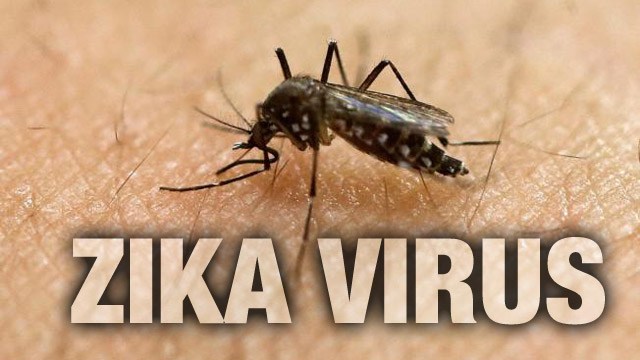CULLMAN – After one confirmed case of the Zika virus in Cullman County, Cullman Regional wants area residents to know the hospital is prepared.
In the event that a patient presents with possible signs and symptoms of the Zika virus, the hospital staff will follow standard hospital precautions. This means the staff treats all blood and body fluids of the patient as if it is carrying some type of infection.
“Luckily, the Zika virus is not transmitted through the air; therefore, no airborne-illness precautions, such as masks for patients with symptoms, will be necessary in public waiting areas,” said Cullman Regional Infection Control and Prevention nurse Marti Smith, RN. “However, patients who present with symptoms and have traveled to areas of outbreak may be put under precautionary isolation protocols.”
What is the Zika virus & what are the symptoms?
Zika is a disease caused by the Zika virus that is spread to people primarily through the bite of an infected Aedes species mosquito. The most common symptoms of Zika are fever, rash, joint pain, and conjunctivitis (red eyes). The illness is usually mild with no symptoms or mild symptoms lasting for several days to a week. People usually don’t get sick enough to go to the hospital, and they very rarely die of Zika. Infection with the Zika virus causes only mild symptoms in the majority of the cases, but an apparent link to birth defects and other pregnancy-related poor outcomes has been associated with infection during pregnancy.
How is it transmitted?
Through Mosquito Bites
Zika virus is transmitted primarily through the bites of Aedes species mosquitoes. These mosquitoes are the same species that transmit dengue and chikungunya viruses which have also been associated with travel-related illness over the past few years. These mosquitoes typically lay eggs in and near standing water in things like buckets, bowls, animal dishes, flower pots and vases. They prefer to bite people, and live indoors and outdoors near people. Mosquitoes that spread chikungunya, dengue, and Zika are aggressive daytime biters, but they can also bite at night. Mosquitoes become infected when they feed on a person already infected with the virus. Infected mosquitoes can then spread the virus to other people through bites.
From Mother to Child
A pregnant woman can pass Zika virus to her fetus during pregnancy. Zika is a cause of microcephaly and other severe fetal brain defects. A pregnant woman already infected with Zika virus can pass the virus to her fetus during the pregnancy or around the time of birth. To date, there are no reports of infants getting Zika virus through breastfeeding. Because of the benefits of breastfeeding, mothers are encouraged to breastfeed even in areas where Zika virus is found.
Through Sexual Contact
Zika can be passed through sex from a person who has Zika to his or her partners. Zika can be passed through sex, even if the infected person does not have symptoms at the time. It can be passed from a person with Zika before their symptoms start, while they have symptoms and after their symptoms end. Though not well documented, the virus may also be passed by a person who carries the virus but never develops symptoms.
Blood Transfusion – none in United States confirmed
There have been multiple reports of blood transfusion transmission cases in Brazil. These reports are currently being investigated. As of Feb. 2016, there have not been any confirmed blood transfusion transmission cases in the United States.
What can be done to prevent the spread of the Zika virus?
Prevent mosquito bites: Zika virus is spread to people mainly through the bite of an infected mosquito.
- Mosquitoes that spread Zika virus bite mostly during the day, but they can also bite at night.
- The best way to prevent Zika is to protect yourself from mosquito bites.
Plan for travel: Currently, outbreaks are occurring in many countries and territories. Zika virus will continue to spread and it will be difficult to determine how and where the virus will spread over time.
- Check travel notices.
- Plan for travel (both before AND after your trip).
- Protect yourself during sex.
- Pregnant women should not travel to Zika-affected areas.
Protect yourself during sex: Zika can be passed through sex from a person who has Zika to sex partners. Studies are currently underway to find out how long Zika stays in the semen and vaginal fluids of people who have Zika, and how long it can be passed to sex partners. We know that Zika can remain in semen longer than in other body fluids, including vaginal fluids, urine and blood.
- Avoid sexual contact to eliminate the risk of getting Zika from sex.
- Use condoms (and other barriers) to reduce the chance of getting Zika from sex.
If you have Zika, protect others: During the first week of infection, Zika virus can be found in the blood and passed from an infected person to another mosquito through mosquito bites. An infected mosquito can then spread the virus to other people. Zika can be passed through sex from a person who has Zika to his or her partners.
- Take steps to prevent mosquito bites.
- Protect yourself during sex if your partner lives in or has traveled to an area with Zika.
Where can I find a list of current affected areas?
For a current list of areas, see www.cdc.gov.
What precautions should I take if I plan to visit a Zika-infected area?
- Use Environmental Protection Agency (EPA)-registered insect repellents. When used as directed, EPA-registered insect repellents are proven safe and effective, even for pregnant and breast-feeding women.
- Wear long-sleeved shirts and long pants.
- Protect your baby or child by dressing them in clothing that covers arms and legs.
- Cover crib, stroller and baby carrier with mosquito netting.
- Treat your clothing, such as boots, pants, socks and gear such as tents with permethrin or purchase permethrin-treated clothing and gear.
- Stay in places with air conditioning or that use window and door screens to keep mosquitoes outside.
- Sleep under a mosquito bed net if you are overseas or outside and are not able to protect yourself from mosquito bites.
For up-to-date information, visit the CDC website at www.cdc.gov.



















